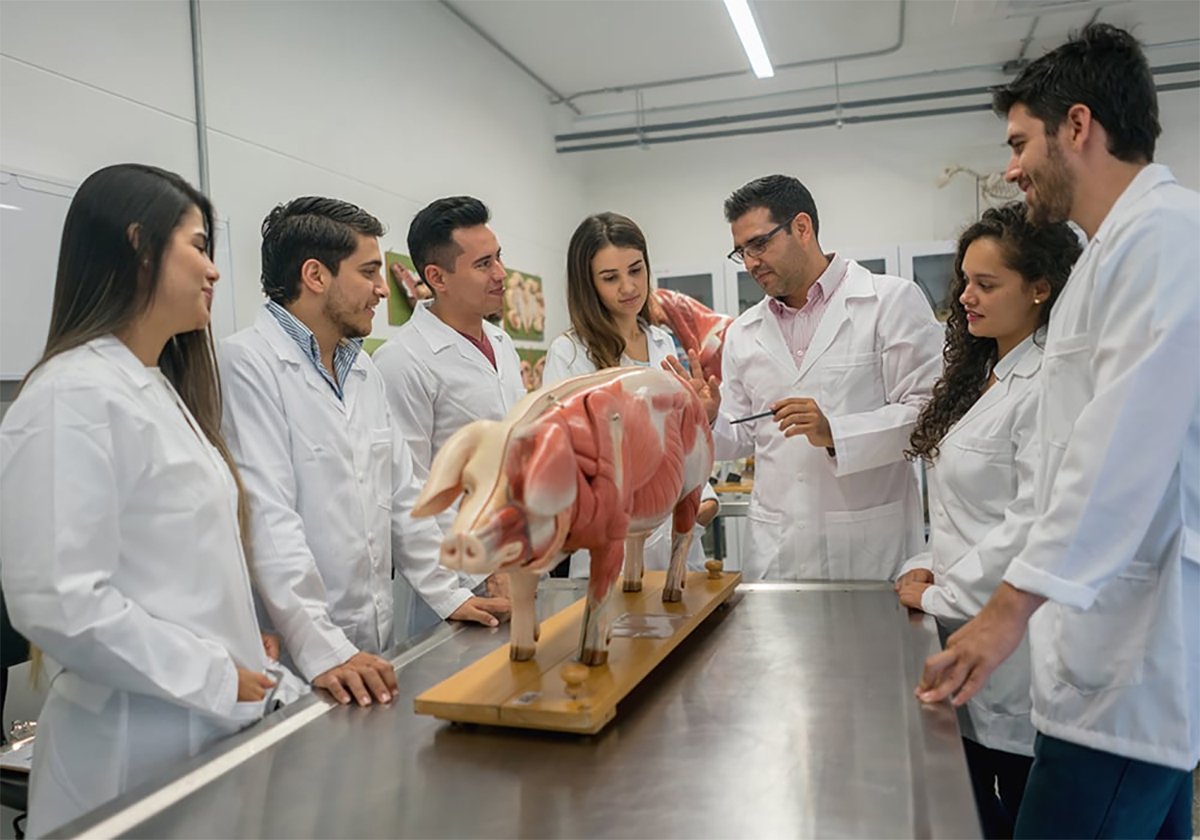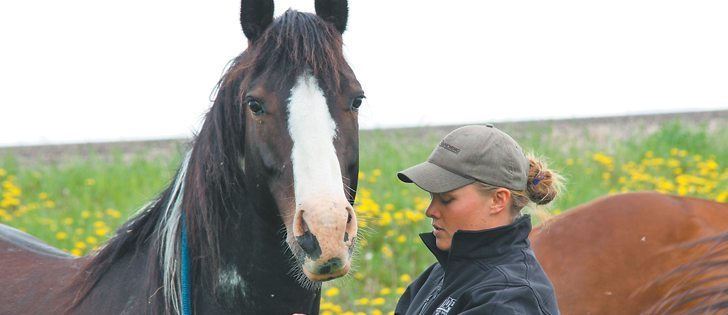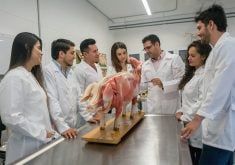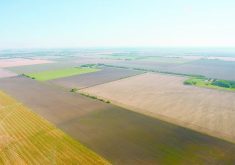Venturing out on their own | Young farmer credits her success to help from family and neighbours
HOMESTEAD COULEE, Alta. — Michelle Peake is like the burrowing owls of southern Alberta: a rare species.
Peake is a 22-year-old rancher.
Except for her sisters, who are also ranchers, there are not many young ranchers, particularly young female ranchers, in her area east of Drumheller.
“There is not a lot of young people around,” Peake said.
Despite the isolation, ranching is what Michelle and her sisters, Whitney Curry, 25, and Martina Wade, 29, wanted to do, said her father, Stratton.
The oldest daughter also works in the oil industry, but the younger daughters just wanted to ranch, he said.
Read Also

Students urged to consider veterinary medicine
Alberta government makes $86.5 million investment in University of Calgary to double capacity for its veterinary medicine program to address labour shortages in the field.
“You couldn’t have turned them around with a stick.”
At 20, Peake went into debt to buy her 2,300 acre ranch and buy 100 cows. She leases another 45 from her father.
“Ranching has been in the family. It’s what the Peakes do,” she said of the family that has ranched in the area since 1897.
At first, Peake said she felt “extremely overwhelmed” with the work and responsibility of owning and operating her own ranch.
“My family has been extremely supportive. My neighbours are extremely helpful,” said Peake, who tries to do as much of the ranch work on her own but leans on her family and neighbours when she needs help.
“I couldn’t have got here without my parents there helping.”
Peake raises purebred Black Angus cattle.
“Out here, you’ve got to have cows that work with you, not against you.”
She spends about two weeks in the summer artificial inseminating 80 percent of the cattle herd. It’s a skill she learned at Olds College while studying for her agriculture production and management dip-loma and since mastered on her own herd.
The cows calve on pasture in April, generally to nice weather. This year’s never-ending winter forced Peake to bring the cattle into the corrals to calve.
She sells the bulls as yearlings through private treaty. She said most buyers are neighbours and ranchers looking for good ranch cattle.
“I want to raise range cattle that do well in range conditions.”
The family had previously raised commercial cattle but worried about the dependence on the American market. They switched from commercial to purebred as a way to diversify the herd. They now have 400 purebred Black Angus cows split among family members.
Helping their daughters become fifth generation ranchers is what Stratton and his wife, Adrienne, wanted to do.
“You have to decide what is important. I’m proud we could do it,” he said.
Stratton said he doesn’t worry about his daughters’ ability to work on the ranch.
“The Peake girls always carry sharp knives. They can do any job,” he said.
Peake brings her roping horses to neighbourhood brandings to help the neighbours and socialize.
“I’m sure you could run them through the chute cheaper, but it’s tradition and they’re fun. It’s a good social event,” she said of the brandings.
“I love to be part of the day-to-day activities. It comes natural.”
Peake’s land in the Special Areas of eastern Alberta is a combination of pasture and hayland. She grows two-thirds of her hay requirements.
Peake said her goals are to continue improving her cow herd and “raise bulls that work for people.”
“I want a functional ranch and continue to try and improve my cow herd and get some of my loans paid off.”















